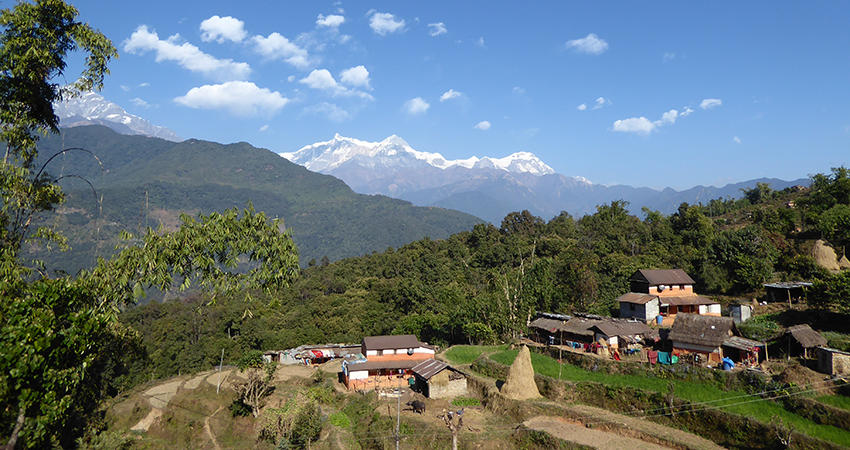Forest governance in Nepal: from centralized control to local users cooperatives

(photo by François Libois)
Focus of the study
UNEP flags forest management in Nepal as one of the success stories of the green economy. After decades of forest degradation, the “Community Forest User Groups” program initiated in the early 90’s would have been key to stabilize forest cover. This program hands over forest management from the department of forest to local cooperatives who can exploit forest resources to the benefit of their users.
Beyond broad statements and case studies, this project first aims at causally estimating the effect of the decentralization program on forest cover. Second, we want to estimate the environmental externalities of users’ cooperatives and test whether these externalities may actually translate in institutional spillovers by fostering the creation of new cooperatives in nearby areas. Third, we want to document the contribution of these cooperatives to the local economy since they are supposed to spend 75% of their revenue on public good provision and livelihood improvements.
Broader motivation for the research
Private management of natural resources is presented as a solution to reduce over- extraction. However, when global externalities are large and market prices do not reflect the social cost of exploitation, state intervention is necessary: the usual debate in the literature lies between the command-and-control and the Pigouvian approach. The experience of Nepal may be a third way.
Nepal appears worldwide as a pioneer in the empowerment of local bodies in the management of common pool resources. “Community forest user groups” are local cooperatives which have the right to harvest forest products, cut trees and sell these products to their members and on the market. By handing the management over, the department of forest turns from a manager to an extension agent providing advice to the cooperatives. Understanding whether, where and why it works is important research-wise but also crucial for policy-makers in Nepal, in other developing countries, and in richer countries, especially in the context of climate change.
Our research aims to assess the effect of the project on forest cover, net of the potentially negative spill-overs on adjacent plots: a successful group may adopt harvesting rules which apply to their land but divert some of the extraction on nearby plots. Yet, this environmental externality may also foster the creation of new cooperatives in adjacent villages willing to become manager of their own resources and avoid encroachment by neighbours who already have their cooperative. It opens questions about how informal institutions (along caste or ethnic lines, education) may modulate the effectiveness of one village’s cooperative, norm compliance and shape relations with the forest department. Documenting how benefits are used is a last crucial step to understand if and how CFUGs may foster development at the local level on top of reducing environmental externalities, in a relatively weak state context.
Research Team
- François Libois, Paris School of Economics and INRA, France
- Jean-Marie Baland, University of Namur
- Nicolas Delbart, Paris-Diderot University
- Mani Nepal, ICIMOD, Nepal
- Subhrendu Pattanayak, Duke University




